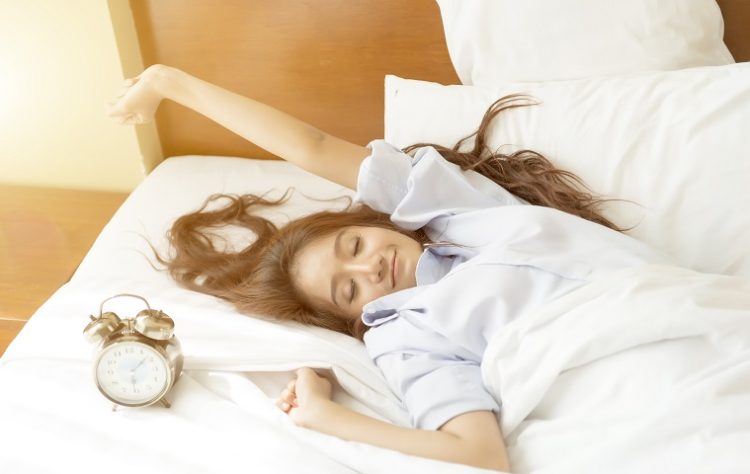A truly balanced and healthy lifestyle depends on multiple factors working in harmony, and among the most powerful duo are regular exercise and quality sleep. Both play indispensable roles in maintaining physical fitness, mental clarity, emotional stability, and long-term well-being. When combined effectively, they amplify each other’s benefits, creating a positive feedback loop that helps you look better, feel stronger, and perform at your best.
This article explores how exercise and sleep complement one another, the science behind their interaction, and practical strategies to harness both for optimizing your health and vitality.
1. The Vital Role of Exercise in Health and Sleep
Regular physical activity is a cornerstone of health. It improves cardiovascular function, strengthens muscles and bones, enhances metabolism, and boosts mood through endorphin release. But beyond these well-known benefits, exercise also profoundly influences sleep quality.
How Exercise Improves Sleep:
- Increases total sleep time and enhances deep (slow-wave) sleep, which is crucial for physical recovery
- Reduces time to fall asleep by regulating circadian rhythms and body temperature
- Decreases symptoms of insomnia and sleep apnea by improving respiratory and cardiovascular health
- Lowers stress levels and anxiety, which often interfere with restful sleep
2. Why Quality Sleep Is Essential for Effective Exercise
While exercise supports better sleep, the reverse is equally true: good sleep is essential to reap the full benefits of your workouts.
How Sleep Supports Exercise Performance:
- Muscle recovery and growth occur primarily during deep sleep phases via growth hormone release
- Cognitive function and motor skills improve with adequate sleep, enhancing coordination and reaction times
- Energy levels and endurance are replenished, allowing for consistent and intense training sessions
- Immune function is strengthened, reducing risk of illness that could interrupt exercise routines
Lack of quality sleep can lead to reduced motivation, slower recovery, increased injury risk, and impaired athletic performance.
3. The Synergistic Cycle Between Exercise and Sleep
The relationship between exercise and sleep is bidirectional and synergistic:
- Exercise promotes better sleep by inducing physical tiredness and regulating body clocks
- Improved sleep enables better recovery, increasing the capacity and consistency of physical activity
- Together, they reduce stress hormones like cortisol and balance mood-regulating neurotransmitters such as serotonin and dopamine
- This cycle fosters enhanced metabolism, fat regulation, and muscle maintenance

4. Tips for Combining Exercise and Sleep for Maximum Benefit
Timing Your Workouts
- Aim to exercise earlier in the day or late afternoon; vigorous workouts too close to bedtime may interfere with sleep onset
- Gentle stretching or yoga in the evening can promote relaxation without overstimulation
Consistency Is Key
- Establish a regular exercise schedule to reinforce circadian rhythms and sleep patterns
- Even moderate activity like walking or swimming contributes positively
Prioritize Sleep Hygiene
- Maintain a consistent bedtime and wake time to synchronize your body clock
- Create a sleep-conducive environment that is cool, dark, and quiet
- Limit caffeine and screen exposure in the hours before sleep
Listen to Your Body
- If you feel overly fatigued or experience poor sleep, consider adjusting exercise intensity or duration
- Rest days are crucial for recovery and should be factored into your routine
5. Practical Daily Routine Example
- Morning: Light to moderate cardio (e.g., brisk walking, cycling) to boost energy and metabolism
- Afternoon: Strength training or higher-intensity interval workouts
- Evening: Gentle yoga or stretching to wind down
- Night: Relaxation techniques such as deep breathing or meditation to prepare for restful sleep
6. Additional Health Benefits of Integrating Exercise and Sleep
- Enhanced weight management through improved metabolism and appetite regulation
- Reduced risk of chronic diseases such as diabetes, heart disease, and depression
- Improved mental health, with decreased anxiety and depressive symptoms
- Greater longevity and overall quality of life
Conclusion
Exercise and quality sleep are inseparable partners in the pursuit of optimal health. Together, they create a virtuous cycle that strengthens your body, sharpens your mind, and balances your emotions. By consciously integrating regular physical activity with consistent, restorative sleep, you set the foundation for a vibrant, energetic, and resilient lifestyle.
Prioritize both with equal dedication — your body and mind will thank you for it.












































